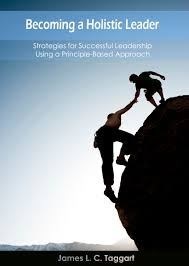Are You Prepared for the Future? How to Deal Effectively with Global Turbulence and Uncertainty

We live in a period of what British management thinker Charles Handy has called Discontinuous Change: that change arrives in erratic, unpredictable bursts. Handy’s regarded as one of the top thinkers of all time, ranking beside management guru the late Peter Drucker. Author of such highly acclaimed books as The Empty Raincoat, The New Philanthropists, and The Age of Unreason, Handy remains at the forefront of global trend identification.
Charles Handy, however, is not the focus of today’s post. He was introduced briefly to serve as the backdrop for another respected thinker and writer who has done significant work in the areas of foresight, strategic management and scenario planning.
Meet futurist Peter Schwartz, cofounder and chairman of the former Global Business Network (later acquired by the Monitor Group) and author of The Art of the Long View, The Long Boom, and When Good Companies Do Bad Things. However, the book from which this post draws is Inevitable Surprises: Thinking Ahead in a Time of Turbulence. Although the book was released in 2003 it’s perhaps even more relevant now, given the turmoil that has pervaded the financial markets and economy since 2008.
In the final chapter, Inevitable Strategies, Schwartz presents a set of skills and behaviours to help people prepare effectively for the onslaught of change. To put you in such a position, Peter Schwartz provides this compelling set of 10 skills and behaviours. Reflect upon them and keep them in a handy location so that you can work on them regularly.
1. Build and Maintain Your Sensory and Intelligence Systems. First off, we’re not talking about IT systems. Rather, this is about “strategic conversations” with colleagues and friends, where your aim is to observe and interpret events unfolding around you and in far-off places, AND their potential impact on your organization and your community. Few people have a solid grasp on this. Be an exception.
2. Establish a sense of timing. As soon as you detect an event occurring, immediately try to determine its speed, impact, when it will exert its effect, and where.
3. It’s key to determine in advance what these indicators will represent and their scope. For example, do they encompass events emerging from such rising powers as China, Brazil and India? And once you’ve identified these indicators, you must watch them studiously and act quickly when you see something occur.
4. Engage Creative Destruction by Eliminating Outdated Processes.
The world is changing quickly, with new markets emerging. Rather than operating in a reactive mode, feeling under pressure to decide which products, services, processes, organizational structures etc. to change or eliminate, it’s more effective to initiate action before urgency strikes.
Note: The expression “Creative Destruction” has a fascinating history, dating back to Marx and Engels. However, it was Austrian economist Joseph Schumpeter who popularized it.
5. Avoid Denial. When you get whacked by a sudden change, don’t pretend nothing significant happened. Denial can lead to a worsening of the problem. Indeed, as Schwartz notes, big business and government excel at specializing in denial. My personal favourite examples are General Motors and Chrysler. Schwartz uses the AIDS epidemic as one example.
6. Know Yourself and Your Ability to Judge . This is especially important in an environment of constant change and market turmoil. But of even greater importance is knowing when not to step outside your bounds of knowledge to take advantage of perceived opportunities. This is when danger presents itself.
7. Embrace Continuous Learning. The majority of failures are what Schwartz calls “failures to learn enough in time about the changing circumstances.” One major problem is how Western countries continue to approach education, and unfortunately the struggle goes on among educators on how to situate it in a global context.
8. Value Environmental Sustainability. Schwartz argues that this extends beyond politics and the environment to how corporations integrate and develop themselves in a global sense, understanding the effects of all of their actions.
9. Protect Yourself Financially. Each of us needs to create our personal safety net involving finances and insurance. However, as a society we need to also look out for those who are vulnerable and less able to protect themselves. The risks of adverse effects are much higher than we realize; hence we must position ourselves to make the necessary transitions in the future as new changes arrive.
10. Build and Grow Your Connections . Continuously building relationships, at work and in our communities, is an essential daily practice. And relationship building and making connections requires depth, not just the shallow chats but the deeper conversations.
This set of skills and behaviours presented by Peter Schwartz are highly relevant to today’s chaotic global environment. View them as your toolbox, something you’ll carry for life as you become a master of change, or simply put: a CHANGEMASTER.
There is no recipe or playbook for doing this. There is only the ongoing knot of life to unravel. Perhaps the string that is the easiest to pull is the string of inevitable surprises.— Peter Schwartz
____________________________________________________________________________________________________

Visit Jim’s e-Books, Resources and Services pages.
Articles from Jim Taggart
View blog
Many years ago, I watched Eco-Challenge 2000 on the Discovery Channel (a show that ran from 1995 to ...

The human race is an odd species. Adaptive to immediate threats and catastrophes, we as humans have ...

Today, we’ll look at the four stages of team development and incorporate the four team player styles ...
You may be interested in these jobs
-
Principal Mine Planning Engineer
Found in: beBee S2 CA - 1 week ago
Kinross Gold Corporation Ontario, Canada Full timeStart Date ASAP · Hybrid Work Environment (3 days in office, 2 days remote with flexible hours) · Dress Code Business Casual · Location Downtown Toronto, Outside of Union Station (TTC & GO accessible) · A Great Place to Work · Who We Are · Kinross is a Canadian-based global ...
-

Pharmacist
Found in: beBee S2 CA - 3 weeks ago
Shoppers Drug Mart / Pharmaprix Aiyansh, CanadaJoin a locally owned and operated store to help deliver health, beauty and convenience services in your community, and keep the customer at the centre of everything you do. · Why this role is important? · SUMMARY: · To manage the operations of the Pharmacy while on duty, includin ...
-
GIS Analyst
Found in: Talent CA 2 C2 - 3 days ago
Government of Saskatchewan Saskatoon, CanadaGIS Analyst-ENV002369Employment Type:SGEU Term 9 months or more Location(s) · :SK-Rgna-ReginaSK-Stoon-Saskatoon Ministry · :026 EnvironmentSalary Range:$ $43.530HourlySalary Supplement:included in hourly salary range (in-scope)Grade:SGEU.09. The Ministry of Environment take ...


Comments